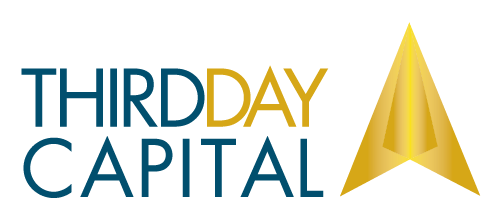Part 3 – Are Morally Responsible / Christian-based Investment Strategies the Answer to ESG?
 In the second part of this series, we looked at the divergence between the mainstream ESG framework and Catholic Social Justice Doctrine, highlighting how, though the goals may be the same, ESG’s incomplete and inaccurate perspective of the human person in some ways contradicts Catholic Social Justice Doctrine, and as such, ESG frameworks are not feasible investment frameworks a discerning Catholic investor can rely on to help them make investment decisions.
In the second part of this series, we looked at the divergence between the mainstream ESG framework and Catholic Social Justice Doctrine, highlighting how, though the goals may be the same, ESG’s incomplete and inaccurate perspective of the human person in some ways contradicts Catholic Social Justice Doctrine, and as such, ESG frameworks are not feasible investment frameworks a discerning Catholic investor can rely on to help them make investment decisions.
Thankfully, the U.S. Conference of Catholic Bishops has drafted, and in 2021, updated, its own Socially Responsible Investment Guidelines. Though they were designed to guide the investment of the USCCB, and by extension, dioceses and parishes around the country, they contain a number of illuminating policies individual investors can adopt for their own portfolios.
First, the USCCB Guidelines reinforce the Catholic Church’s mandate to employ a moral approach when investing saved assets. Recognizing that prudent stewardship of the resources within one’s control extends to the morally licit pursuit of a reasonable rate of return from investments in light of the financial needs of the investor. Thus, the USCCB balances the need for risk-adjusted profit on investments with the demand to promote and advance social justice. Recognizing that companies often have both moral and morally questionable products, practices, or policies, that some have unambiguously immoral products, practices or policies, and that realistically, “shareholders today exercise relatively little power in corporate governance”, the Guidelines identify three potential decision outcomes; avoid doing harm, actively work for change, and promoting the common good, in that order of priority.
Investors will readily understand the concept “avoiding harm” as avoiding, or if necessary, divesting from, investments in companies that derive “a significant amount of revenue” from immoral products or services, and/or exhibit immoral practices or support immoral policies. Avoiding specific investments upfront is the most common way to do no harm, but sometimes companies will adopt or disclose the existence of problematic factors that require divestment after the investment has been made. Avoidance and/or divestment was the tactic employed by early ESG investors and is still a valid approach for Catholic investors today.
In situations where a company or investment is “mixed”, and exhibits both morally good and morally questionable characteristics, or where divestment is not preferable, the USCCB will actively work for change within the investment. Actively working for change is the practice of engaging the company’s management team or public policy makers in discussions that attempt to direct decisions toward morally and socially just outcomes. For virtually every individual investor, engaging the management team of a publicly traded company of any size is unrealistic. Shareholder resolutions designed to obtain wide shareholder support for morally driven objectives fail to garner much of any support virtually all of the time. Thus, engagement and dialogue is a tool available only to the largest institutional investors and beyond the scope of this series.
Promoting the common good is an approach that individual investors may have recourse to. It involves a conscious decision to invest in an opportunity that might offer a lower financial rate of return than what could otherwise be achieved but is deemed to be prudent stewardship of one’s resources if it also advances the common good. For example, a Catholic investor may be presented with an opportunity to invest in a real estate development, or re-development, project that expands access to affordable housing for an under-served constituent. If the project offers a lower rate of return than other real estate development projects, the investor would be justified investing in the project if the rest of their portfolio can reasonably be expected to achieve the rate of return they need to achieve.
Other examples include for-profit corporations that give an unusually large percentage of their profits to charities (diminishing cash flows and presumably returns over time), “green bonds”, which companies issue in order to advance their own internal environmental stewardship at substantially lower interest rates than comparable corporate bonds, and impact investments made in non-profit organizations that offer some rate of return, but at much lower levels than other equity investment opportunities. Promoting the common good should not be prioritized over promoting one’s own good if doing so would reasonably jeopardize their own financial stability or that of their children (here, we are making a distinction between jeopardizing a family’s abundance and a “jeopardizing” a family’s superfluous wealth).
The Guidelines delineate five main areas to which Catholic investors should pay particularly close attention and apply the above methods; the protection of life, the promotion of human dignity, the promotion of just acts, the enhancement of the common good, and the care for the environment.
As you might expect, the protection of life includes abortion, euthanasia, assisted suicide, in vitro fertilization, embryonic stem cell / fetal tissue research that results in the destruction of the embryo or was obtained from aborted fetuses, and human cloning, among others. It covers products, such as surgical products or pharmaceuticals, facilities and operators, and services organizations. It encompasses companies that either directly participate in any of the above activities, or those that support other companies that engage in the above activities or support policies that promote the above activities. On the flip side, it also includes a company’s policies and actions that promote access to health care and medicine, which are considered inalienable rights because they support a person’s inalienable right to life.
Promoting human dignity involves human rights, such as fair labor practices (see the first part of this series), but also includes products or services that degrade human dignity such as pornography or involve sexual exploitation in some manner. It includes a company’s products, practices and/or policies related to the truth about gender; companies for example that provide gender reassignment surgery, or company policies that promote or support it are morally illicit. As a notable example, when the so-called Marriage Equality Act was enacted in Congress, dozens of publicly traded companies signed statements supporting the re-definition of marriage and adopted policies internally that provided spousal benefits to same sex couples.
The promotion of just acts and the enhancement of the common good are inter-related, but cover things such as affordable housing and banking, reducing the production of illicit weapons (nuclear, chemical, biological, landmines), addictive materials (drugs, alcohol, tobacco), or unhealthy addictive behaviors (gambling, because it often deprives the less fortunate of the resources they need to meet basic living conditions), and media and entertainment. The concepts of justice and common good extend beyond simply “making people’s lives better or easier” in a material sense, which is consumerism, to promoting the common good of the entire person, for all people, their spiritual and emotional well-being included. Thus, a company’s products and services, policies and practices should be evaluated on how they promote the advancement of the entire human being and all human beings.
Care for the environment is straightforward; it includes prudent and efficient resource utilization and the mitigation and/or restoration of the impact of a company’s operations on the climate, natural resources (especially water), and biodiversity.
For the individual Catholic investor, the Guidelines provide a truthful, clear, cohesive, and flexible framework by which investment decisions should be made. The pragmatic application of them, however, can be more challenging. In our next and final installment of this series, we look at the pragmatic considerations and approaches Catholic investors can use within their portfolios, or that their investment professionals can use on their behalf.
In the meantime, if you have comments or thoughts, please share them here. And of course, if you have questions, feel free to reach out. We’re always happy to help.

